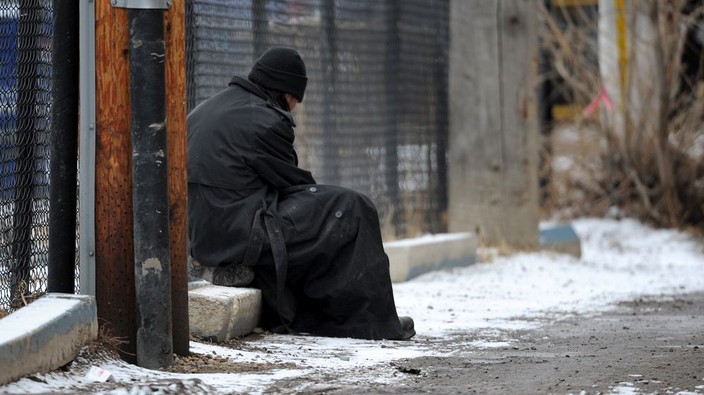by: cheryl mackhomelessness is not a crime. it is the result of a socioeconomic system that allows people to be excluded from owning or renting a home. those who find themselves without the ability to afford a home are faced with limited choices and significant barriers to overcome. ironically, access to many social services to support homeless people depend on a permanent address, so once houseless, the barriers to getting housed increase.“as a homeless 16-year-old, the options social services gave me were to go to a group home, return to an abusive family or go it alone. then, as a poor 18-year-old, i applied to university. neither british columbia nor the yukon would fund me as an emancipated minor. as a 21-year-old mother, i struggled with work. you can not get a job without child care, and you can not get child-care funding without a job. as a 23-year-old student, funding for university did not cover the costs of raising a child and social services would not help unless i sold my car, which i did, and still did not get funding. these are examples of the many systemic barriers that keep people living in poverty. for people living in poverty, it is one sick child, one illness, one house emergency or one lost job that can make the difference between being housed and unhoused.” dr. jennine wismark.there are more examples of socioeconomic barriers. our economy arbitrarily values certain types of labour over others. one example is domestic labour, essential to the current and future well-being of our province and is largely unpaid. domestic labour is not valued in the marketplace and these socioeconomic biases play a continued role in an underpaid female workforce that is left economically vulnerable.similarly, paid domestic labourers are often people of colour and again historically undervalued. many racialized communities are excluded from more stable and better remunerated forms of employment. additionally, there are barriers to those with physical and mental health challenges which also exclude them from higher-remunerated work. systemic burdens of sexism, racism and able-ism exclude people from a level of remuneration that would reduce the risks that lead to homelessness.despite clear societal barriers, we continue to treat the unhoused as criminals — removing them from their meagre homes in parks and public spaces and forcing them away from community into approved shelters. the government recently announced increased emergency shelter funding. this is a temporary fix and not a permanent solution.at best, shelters provide temporary warmth and food but also can be isolating and unsafe. we need permanent, safe places for our unhoused community. without access to conventional forms of stable shelter, the homeless often find themselves unwelcome and treated as criminalized intruders, making them more vulnerable to abuse and harm.the pandemic has exacerbated disparities. in edmonton 2,800 people are without housing, twice as many as 2019. access to support services became more challenging and crowded shelters increased the risks of contracting covid in a population that could not social distance. staying at home and limiting contacts is a privilege associated with being housed. homelessness, always a health risk in pre-pandemic times, became even more of a factor in negative health outcomes during the pandemic.being homeless exposes our community members to preventable life-and-limb-threatening conditions. as physicians we deal with the moral distress of trying to fix, for example, a foot ulcer without being able to heal the true disease of lack of shelter, reliable food, and preventative care which homelessness cause. we treat drug poisoning, only to send the person off again to the environment that led to it. an environment that leads to mental and physical trauma exacerbates previous trauma that can underlie many of the mental health and substance use disorders that can coexist with homelessness.“more than 30 years distant from my time as a homeless teen, i am now a physician. people will use my story as an example of perseverance and hard work. this is a lie we like to tell ourselves to justify ignoring the disparities around us. what made the difference for me is luck and privilege. i am white. i was healthy. i had friends and a partner who supported me. i didn’t have the burdens of racism, able-ism, historic trauma, or isolation that many others endure. i can recognize my challenges and my privilege, and i hope that we can all do the same.” dr. jennine wismark.we need action and collective will to support our neighbours out of conditions creating homelessness. winter is here and so many are now even more vulnerable. this is a public health emergency that requires urgent attention and comprehensive services to help support people out of homelessness. while the $21.5-million announcement by the province is much needed to address the current issue, barriers still need to be removed to lift people from the cycle of poverty and houselessness.the situation in wetaskiwin is dire and illustrates the crisis that develops when the unhoused are cut off from crucial supports and safe living conditions. as a society, we need to recognize that poverty and homelessness are not crimes. this is a consequence of economic and social policies that can be changed if we collectively want it. it starts by recognizing our houseless community members as neighbours. everyone is deserving of shelter, warmth, support, and care.we believe that with collective will and civic, provincial, and federal support, this can be solved.dr. cheryl mack, vice-president, edmonton zone medical staff association.dr. jennine wismark, treasurer, edmonton zone medical staff association.
share story
share this story
opinion: homelessness in alberta is a public health emergency
 4 minute read
4 minute read













